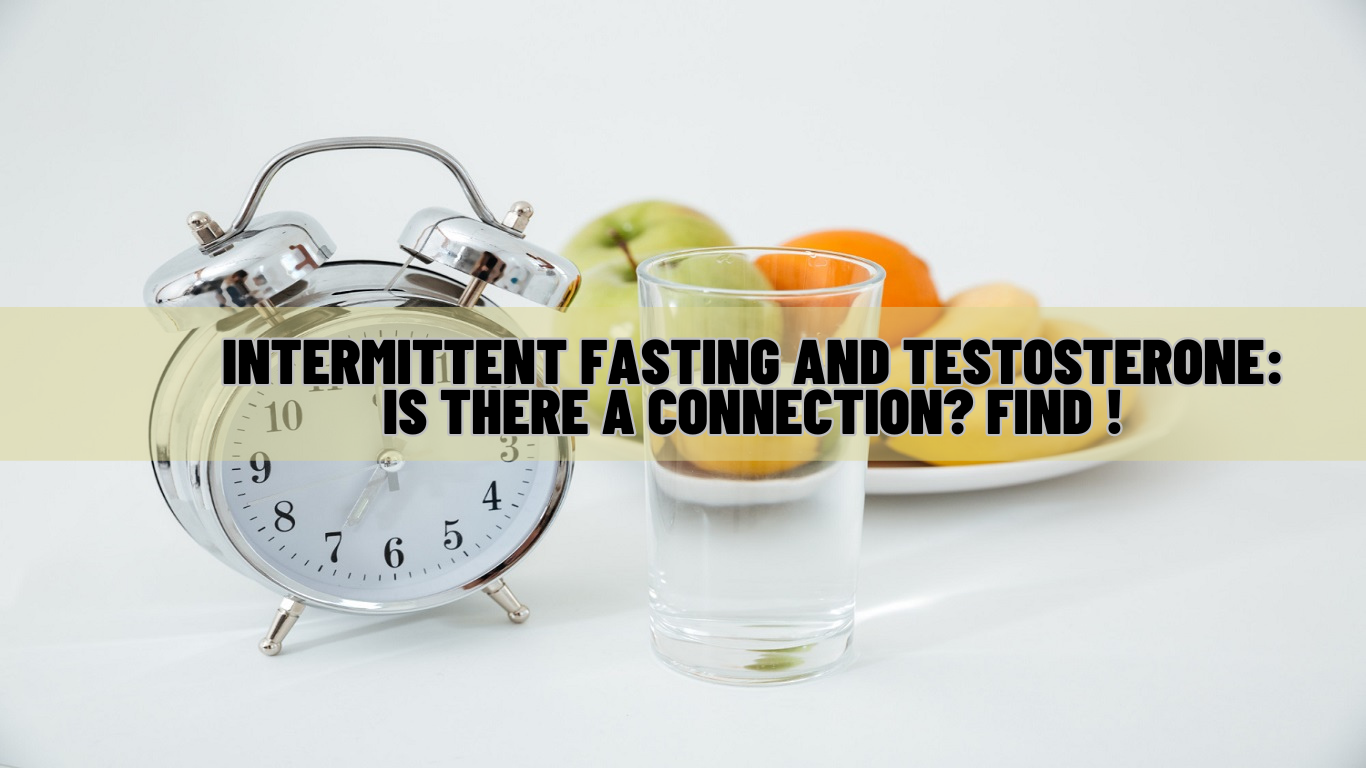Does Intermittent Fasting Increase or Lower Testosterone? Find !

Intermittent fasting is one of the most trending diet patterns in the present day that has proven to be quite effective when it comes to weight loss. Now many people looking for various natural ways to boost their testosterone levels are often curious to know if intermittent fasting has any correlation with testosterone improvement.
Well, intermittent fasting basically involves eating calorie-restricted food that does not trigger the insulin response. This then allows you to alter between a fasting period and eating regular food either during the day or within a week helping you to burn excess weight.
We have already established earlier that body weight plays a crucial role in testosterone production. In this article, we will take a closer look at whether intermittent fasting has any influence on testosterone production, what science says, and more.
Is There A Correlation Between Intermittent Fasting And Testosterone
Whether Intermittent fasting helps in improving testosterone levels in men is still under a lot of debate. Many say that there can be a positive connection between the two owing to its weight loss benefits, and yes, it might support indirectly which we will get to in a bit. However, there are limited but concrete studies that have shown that intermittent fasting has the potential to lower testosterone levels in men.
The case in point would be one of the research reviews from 2022. The study was conducted specifically to understand and clarify the effect of intermittent fasting on testosterone production in men. Their findings suggest that there was a decline in testosterone levels in lean, young, and active men as a result of fasting. This can in turn affect their metabolic and sexual health.
The potential explanations behind this are quite apparent though. As mentioned earlier, intermittent fasting is intended to create a calorie deficit in the body to lose weight. This can, however, lead to loss of energy and even create a nutritional gap which has a negative influence on various body functions including those associated with testosterone production. Interestingly, the same study also found that intermittent fasting had no such effect on lean muscle mass and muscle strength.
Well, to be honest, the data surrounding a direct correlation between intermittent fasting and testosterone is limited as of now. However, with constant progress in science and researchers trying to explore new connections associated with body functions, there might be changes in results and conclusions in future clinical studies.
What’s The Indirect Connection: Don’t Weight Loss And Muscle Parameters Affect Testosterone?

In case you are wondering if intermittent fasting helps lose weight, then shouldn’t it also affect testosterone levels? Well, it does. In this way, intermittent calorie control can have a positive effect on testosterone indirectly.
Some of the crucial factors that majorly influence testosterone health include:
A clinical trial involving eight weeks of time-restricted feeding was conducted to study the effect on metabolism, physical strength, body composition, and inflammation on resistance-trained men. It was found that intermittent fasting with a restricted calorie consumption window, when combined with resistance exercises did have a positive influence on the body.
There is scientific evidence showing how obesity can negatively affect testosterone production in men. Excess body weight can increase the sex hormone binding globulin levels which then link with the free testosterone thus reducing its levels in the bloodstream. Regular physical exercise promotes weight loss along with building and retaining lean muscle mass and improving strength. All these have been proven to be crucial for testosterone production.
A healthy diet, on the other hand, is equally important when trying to burn calories. Studies have shown that dietary patterns can influence testosterone output in multiple different ways. Making healthy choices of food, particularly those that can fulfil those nutritional requirements associated with testosterone health, is beneficial.
Excessive body weight also increases cortisol (stress hormone) levels due to inflammation at the cellular level. This can cause oxidative damage to the cells and put testosterone levels at risk. Intermittent fasting can be effective here in combination with exercise, sleep, and proper diet can thus help in fat loss which then improves testosterone health.
Conclusion
After a careful analysis of the available studies and considering various parameters associated with testosterone production, We can say that intermittent fasting is effective in losing weight and improving body composition. However, it is not an independent tool for increasing testosterone, in fact, it can bring down its levels as proven in clinical reviews. The main reason, undoubtedly, is the nutritional deficiency.
That said, given that weight loss is essential in improving men’s health, when intermittent fasting is practised the right way and combined with a low-calorie yet nutritious diet and physical exercise, it can aid weight loss while assisting you in building and strengthening muscles. This may then help increase your testosterone levels.
Remember, if you are experiencing serious low testosterone issues, you must consider getting yourself checked and tested professionally to understand the root cause. Depending on this you can decide your next course of action- testosterone boosters, healthy lifestyle choices, etc.
